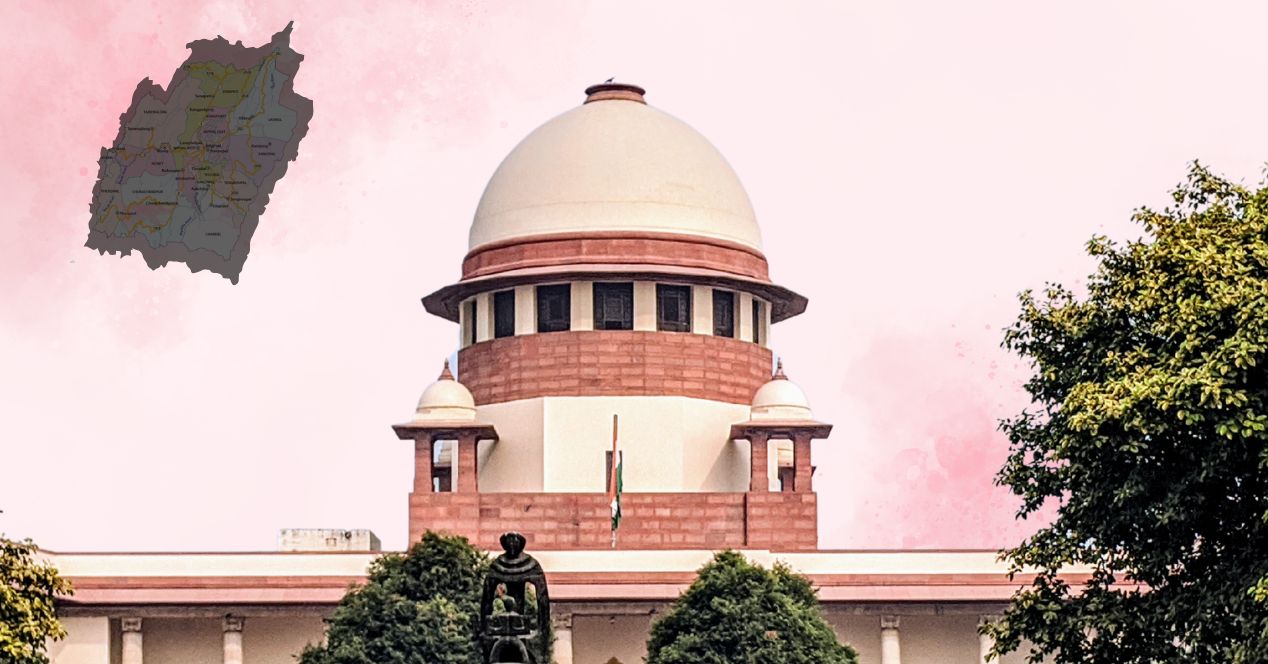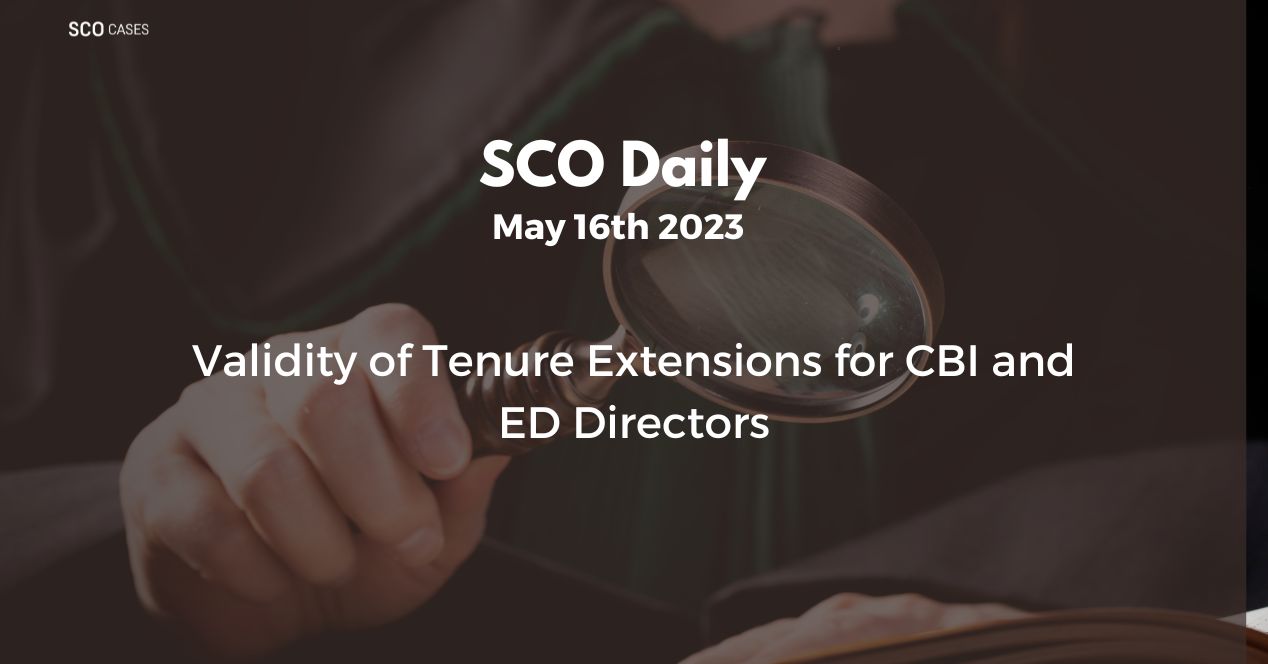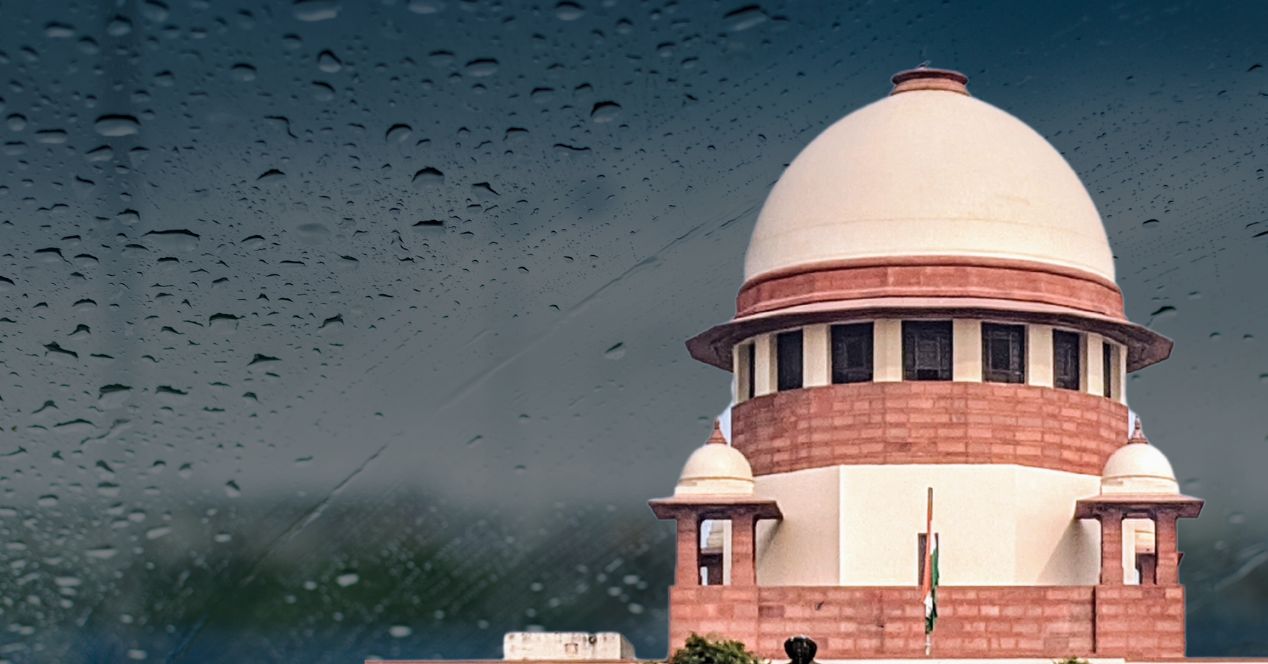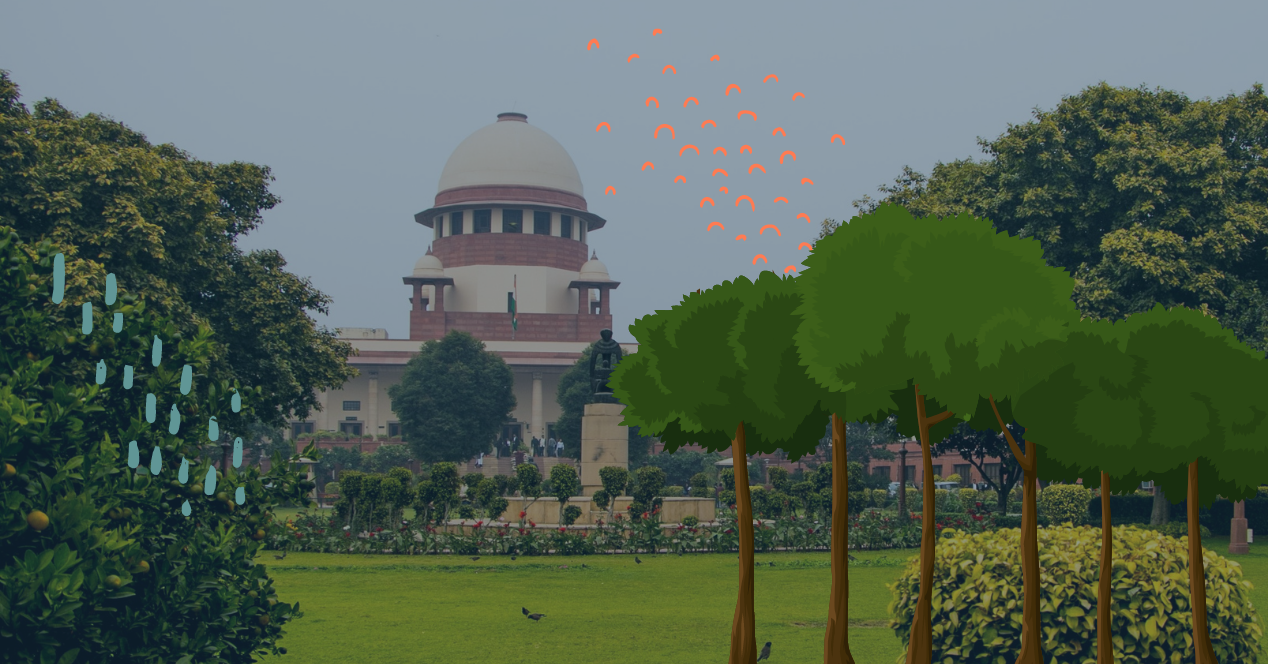Analysis
“Be you ever so high”: A brief history of the Supreme Court’s call for impartial agencies
The Jain Hawala decision was meant to have freed agencies like CBI and ED from Union interference. The government keeps finding a backdoor
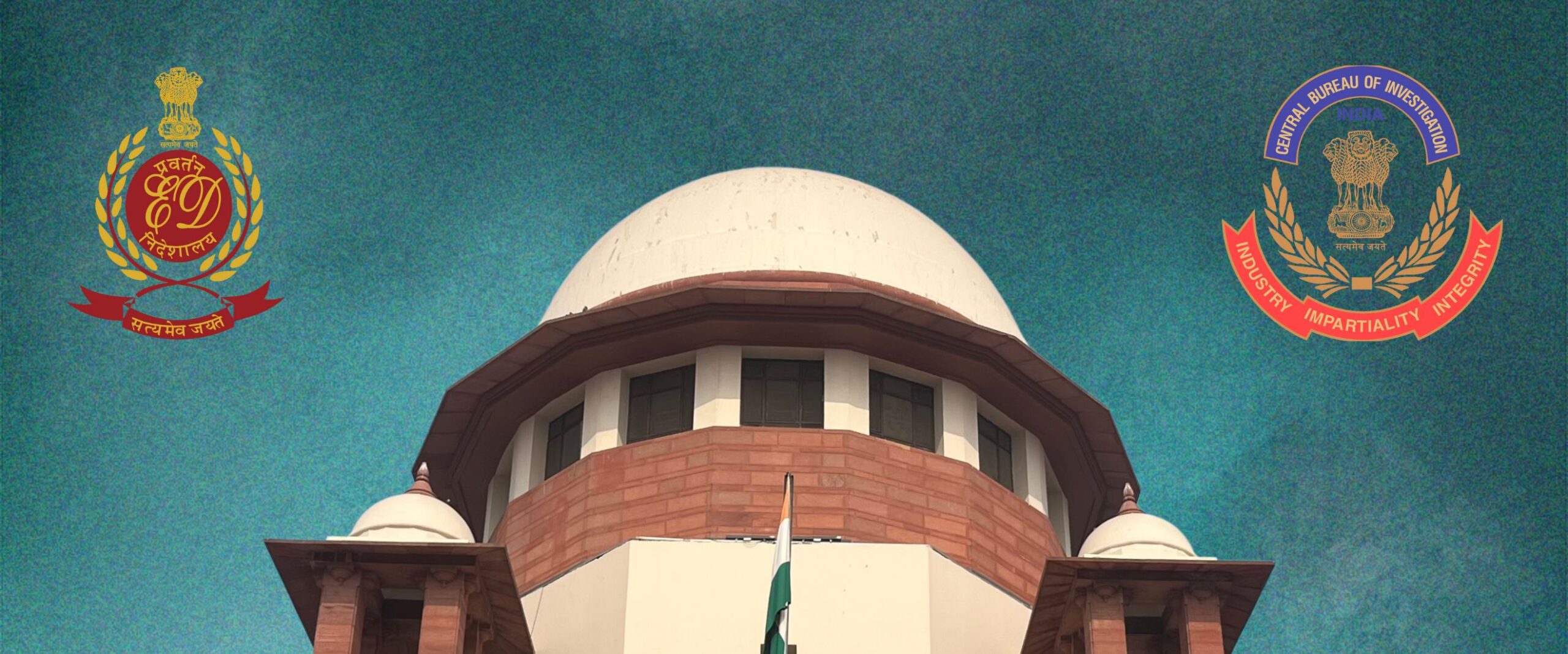
“Something has to be evolved so that while the accused in genuine cases don’t go scot-free merely because it is being handled by the central agency and there is also no mala fide or witch-hunt,” the Supreme Court said on 25 January 2024. “There has to be a mechanism, particularly when the ruling party is different between the Centre and the State.”
The top court’s comments came during the hearing of a crucial case in which the Enforcement Directorate—the central agency that investigates financial crimes and money laundering—contended that Tamil Nadu had not shared details of investigations into corruption and sand-mining charges against ministers and officials.
The ED had sought the transfer of a bribery case against one of its officials from Tamil Nadu, where it was registered. The ED official, Ankit Tiwari, was arrested on bribery charges by the Tamil Nadu Police in December 2023.
The case came at a time of increasing friction between opposition-led states and central agencies, particularly after West Bengal chief minister Mamata Banerjee led a sit-in at the Central Bureau of Investigation’s Kolkata office in 2021, to protest the arrest of a Trinamool Congress minister in the Narada scam.
The Tamil Nadu case is crucial because it evinces the Supreme Court’s endeavour to evolve a transparent mechanism to avert “vindictive” or “tit-for-tat” actions between state police and central investigative agencies.
The Bench noted that Tamil Nadu should be the testing ground for the implementation of a “pan-India mechanism” to ascertain whether there is political vendetta behind the unleashing of central agencies in opposition-ruled states and states then retaliating by arresting the local officers of central agencies.
The impact of the case, and the mechanism the Supreme Court hopes to evolve, is likely to build on case history pertaining to investigative agencies that stretches back nearly three decades. As central investigative agencies increasingly play an oversized role in centre-state relations, a recapping of this history becomes crucial.
The Vigilance Commission as watchdog
In 1993, a public interest litigation was brought to the Court seeking an honest probe into a financial scandal involving payments to politicians in Maharashtra. In Vineet Narain v Union of India (1997)—commonly called the Jain Hawala Case—a three-judge Bench of the Supreme Court had struck down the 1969 “Single Directive” of the Union Government, a consolidated set of instructions issued to the CBI by various ministers on the modalities of initiating and registering cases. The Single Directive stated that there had to be prior sanction of the designated authority to initiate investigations against senior officers of government, public sector undertakings and nationalised banks.
In the broader context, the judgment directed the Union government to give statutory status to the Central Vigilance Commission and entrust the watchdog to ensure that the CBI functions effectively and efficiently and is viewed as a non-partisan agency.
The Union government was further directed to take steps to constitute an impartial agency comprising persons of unimpeachable integrity to perform functions akin to those of the Director of Prosecutions in the United Kingdom. The body was meant to be entrusted with the task of supervising prosecutions launched by the CBI and ED.
However, this was only the beginning of an arduous tug-of-war between the judiciary and the executive.
The Union strikes back
Six years later, Section 6A of the Delhi Special Police Establishment Act, 1946 was introduced by the Union government to restore the prior approval requirement. Section 6A(1) stipulated that any investigation into charges against officials of the rank of joint secretary and above, can begin only after its approval. The effect of the Single Directive was brought back, defeating the objectives of Vineet Narain.
In 2014, in Subramanian Swamy vs Union of India, the Court struck down this section too, holding that it violated the norm of equality by extending its protection only to a class of public servants and not everyone. This judgement has not yet been challenged by the Union government.
In September 2023, a five-judge Constitution Bench in CBI v R.R. Kishore held that the judgment in Subramanian Swamy will have retrospective effect. Taking note of the chronology of the developments in this regard, the Bench observed that barring small windows of a couple of years, the protection regarding sanction before prosecution has remained in force and continues as such, right from 1969, when the saga began.
In 2018, the Prevention of Corruption Act, 1988 was amended to introduce Section 17A, which made the government’s previous approval a mandatory requirement before any probe can be begun into decisions or recommendations made by a public servant, irrespective of their bureaucratic position. In effect, regardless of the validity of Section 6A(1) of the DPSE Act, the government still holds the cards to decide who the investigative agencies probe.
In Subramaniam Swamy, the Court had observed that such provisions are destructive of the objective of the anti-corruption laws, block the truth from surfacing and sometimes result in a forewarning to those officials involved. The Court stressed the need to have safeguards to prevent frivolous inquiries into the conduct of public servants but also warned against the mechanism being misused to shield genuine offenders.
Freeing the “caged parrot”
The spirit of Vineet Narain, though constantly diluted by the executive, has always found its way back whenever the question of impartial investigation against those in power arose. The coal scam case, during which the top court called the CBI a “caged parrot,” is such an instance where it made repeated reference to the three-judge decision authored by then Chief Justice J.S. Verma.
In 2018, when the Union government decided to send the then CBI director Alok Verma on compulsory leave, serious concerns were raised about the autonomy of the investigative agency and many reminisced about the relevance of the guidelines enunciated in Vineet Narain.
In July 2023, while upholding the validity of two central laws and the corresponding rules that provide for a maximum tenure of five years for the directors of the CBI and ED, the top court in Dr Jaya Thakur v Union of India said that the verdict in Vineet Narain had specifically provided that the CBI director shall have a minimum tenure of two years.
The intervention of the Supreme Court to evolve a mechanism to strengthen the premier investigative agencies with more transparency is a timely one as the ongoing sparring between the agencies and the functionaries of the ruling dispensations in various states often takes an ugly turn. But barring Vineet Narain, the judges in Jaya Thakur did not discuss the rich history of prior case law on the topic including the cases mentioned in this piece.
A mechanism to check vindictiveness
At the same time, we must not forget that though the focus of Vineet Narain was on central agencies, it also cautioned about the urgent need for the state governments to set up credible mechanisms for the selection of police chiefs. With reference to the report of the National Police Commission (1979), the top court had made it clear that the Union government must pursue the matter with state governments. Such a mechanism would determine the appointment, tenure, transfer and posting of not merely the chief of the state police but also all police officers of the rank of superintendent of police and above.
Despite the constant vigil by public-spirited citizens and the interventions by the apex court, our investigative agencies operate on the same turf. Even then, it would be wrong to suggest that nothing has changed so far, even if the changes are merely ornamental. The evolution of such mechanisms has always been a gradual process. And the evolution of this one might not have to wait interminably.
The Court has cracked the whip by asking the Union government to come out with some mechanism to be applied across the country, suggesting that if it fails to, the Court will take the task upon itself.
Now it is for the Union government to rise to the occasion, as it is also in their best interest to be at the helm of the investigative agencies which have cleared the acid test of impartiality. Even failing an idealistic motive, the Union government may prefer framing its own vision of such a mechanism, rather than hand it to the top court that has been combative over the issue.
Ultimately, a meaningful outcome can only be arrived at by enabling the agencies to fearlessly fulfil their duties and uphold 17th century historian Thomas Fuller’s postulate about equality: “Be you ever so high, the law is above you.”
Ron Bastian is a practising lawyer in the High Court of Kerala.

